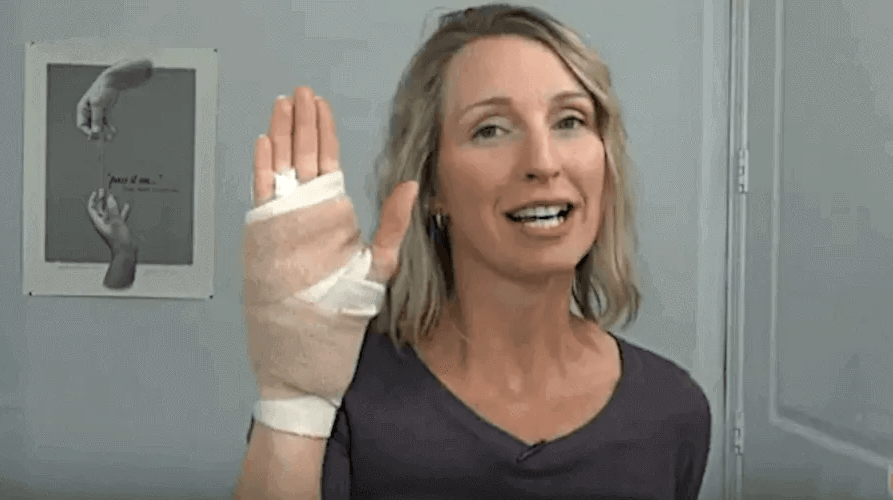Finding the Right Doctor for Carpal Tunnel | Expert Guide
Dr. M. Zannakis | The CarpalRx
To find the best doctor for carpal tunnel syndrome, choose a
hand specialist or orthopedic surgeon with proven experience treating nerve compression disorders. Always ask clear questions about your diagnosis, non-surgical options, and the type of surgery recommended. A good doctor will welcome your questions, explain every step, and make you feel confident before surgery.
Finding a Doctor for Carpal Tunnel Syndrome
Choosing the right
carpal tunnel doctor is one of the most important steps in getting your hand back to normal. You should feel comfortable and confident with your surgeon—it’s not just about skill, but about trust. That comfort helps calm the anxiety that often comes before hand surgery.
Above all, make sure your doctor is a
hand or nerve specialist, not just a general practitioner. Carpal tunnel syndrome is a highly specific condition that many non-specialists still
misdiagnose or treat incorrectly.
Before your procedure, take time to ask questions, understand your diagnosis, and discuss every option. A transparent, caring doctor will make sure you’re fully informed and never rushed into surgery.
Smart Questions to Ask Your Carpal Tunnel Doctor
Carpal tunnel surgery is a major decision—usually the last resort after non-surgical treatments have failed. To feel confident about your care, use the following guide when meeting with your doctor.
The National Institutes of Health reports that
over 50% of patients who undergo carpal tunnel surgery were misdiagnosed—they didn’t have carpal tunnel at all. Because the symptoms of
tendonitis,
arthritis, and carpal tunnel can overlap, only a trained hand specialist can accurately tell them apart.
If a doctor immediately suggests surgery without proper testing or evaluation, be cautious.
True experts will first confirm the diagnosis and explore non-surgical remedies such as massage therapy, night bracing, or stretching before ever recommending surgery.
1. Ask About Non-Surgical Options First
Experts at the NIH and
American Academy of Orthopedic Surgeons agree: surgery should only be considered when symptoms are severe and all other treatments—like bracing, stretching, massage, or steroid injections—have failed after at least six months.
In fact, over
90% of patients find relief from these conservative therapies. Be sure you’ve given them a fair try before scheduling an operation.
2. Confirm It’s Really Carpal Tunnel Syndrome
3. Ask How the Diagnosis Was Made
The most reliable diagnostic tools are physical exams, not just EMG tests. The doctor should perform the classic
Tinel, Phalen, and Durkan tests and explain what your results mean.
If a physician insists that EMG testing alone is the “gold standard,” that’s a red flag—they may not be following current guidelines of the
AAOS.
4. Confirm the Doctor’s Track Record
When considering surgery, choose a doctor with a long track record of successful outcomes and advanced training in hand disorders. A highly rated hand surgeon or neurologist may cost more, but your hands are worth it.
5. Learn About the Surgical Technique
There are two main types of carpal tunnel surgery and they
differ greatly in how they're done.
Ask which method your surgeon uses most often and how many successful procedures they’ve performed. Experience matters more than the technique itself.
6. Discuss Risks, Recovery, and Anesthesia
Every surgery carries
risks, from infection and nerve injury to permanent weakness, excessive
scarring or stiffness. Ask your doctor:
- Which type of
anesthesia will be used (local or general)?
- How long
recovery will take and what activities will be restricted?
- Whether therapy or
job adjustments will be needed afterward.
Knowing these details helps you prepare both physically and mentally for recovery.
8. Will You Need to Change Jobs?
Carpal tunnel syndrome is largely an
occupational disorder. That means your job probably caused it. Therefore, it will more likely return if you continue to do the same activities that caused the problem to begin with. Therefore, you will probably need to reduce or discontinue your
job activities. This is something you must discuss with your doctor. For carpal tunnel surgery patients, approximately
90% of them must find a different job afterward.
9. Be Your Own Health Advocate
If a doctor seems impatient, vague, or dismissive, trust your instincts. A good surgeon takes time to answer every question and ensures you understand what’s ahead. Remember—there are no dumb questions when it comes to your health.
Conclusion
Having open, honest communication with your doctor is the best way to approach carpal tunnel surgery. Understanding the diagnosis, treatment plan, and recovery process removes fear and uncertainty.
If something doesn’t feel right—or if a doctor can’t answer your questions clearly—seek another opinion.
The right doctor will educate you, guide you, and help protect your hand’s long-term health.
FAQs About Choosing a Carpal Tunnel Doctor
1. What type of doctor should I see for carpal tunnel syndrome?
A board-certified hand specialist, orthopedic surgeon, or neurologist with experience in nerve compression disorders is best qualified to diagnose and treat carpal tunnel.
2. How can I tell if my doctor is the right one?
Look for a doctor who listens carefully, explains your options clearly, and answers every question without rushing you. The best surgeons combine technical skill with compassion and clear communication.
About







